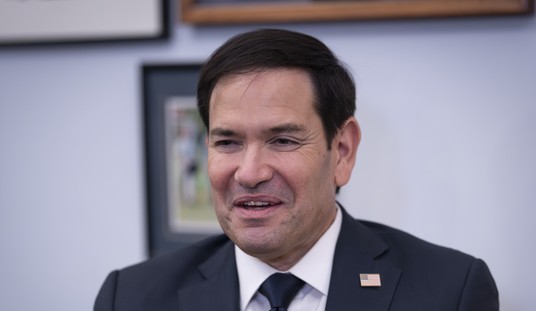The controversy around L.A. Clippers owner Donald Sterling’s racist remarks was well past the boiling point before anyone in the media thought to ask an obvious question: “Was it a violation of his privacy rights for his young girlfriend to tape her conversations with him?” I believe it was none other than Kareem Abdul-Jabbar, writing for Time, who first raised the subject.
Kareem is no defender of Sterling’s, although he says for the record that they had a good relationship when he worked for the Clippers as a coach in 2000. He’s happy enough to see a racist “paraded around the modern town square of the television screen so that the rest of us who believe in the American ideals of equality can be reminded that racism is still a disease that we haven’t yet licked.” He’s just a bit cynical about the ensuing Outrage Theater (which he colorfully describes as “the news media peeing themselves with glee”) and not comfortable with the idea that Sterling’s odious ideas should strip him of basic rights and privileges:
What bothers me about this whole Donald Sterling affair isn’t just his racism. I’m bothered that everyone acts as if it’s a huge surprise. Now there’s all this dramatic and very public rending of clothing about whether they should keep their expensive Clippers season tickets. Really? All this other stuff I listed above has been going on for years and this ridiculous conversation with his girlfriend is what puts you over the edge? That’s the smoking gun?
He was discriminating against black and Hispanic families for years, preventing them from getting housing. It was public record. We did nothing. Suddenly he says he doesn’t want his girlfriend posing with Magic Johnson on Instagram and we bring out the torches and rope. Shouldn’t we have all called for his resignation back then?
Shouldn’t we be equally angered by the fact that his private, intimate conversation was taped and then leaked to the media? Didn’t we just call to task the NSA for intruding into American citizen’s privacy in such an un-American way? Although the impact is similar to Mitt Romney’s comments that were secretly taped, the difference is that Romney was giving a public speech. The making and release of this tape is so sleazy that just listening to it makes me feel like an accomplice to the crime. We didn’t steal the cake but we’re all gorging ourselves on it.
I’ve heard Sterling actually asked for these recordings to be made – about 100 hours’ worth of them – so perhaps his ex-girlfriend won’t be running afoul of any wiretapping laws. But it’s interesting that no one of any media stature interrupted the feeding frenzy to ask if this was a legal invasion of privacy, until Kareem Abdul-Jabbar brought it up. Not even the chief executive of the United States had any such questions – he just rolled right into the controversy when a reporter in Malaysia asked him about it, tossing in his usual blanket condemnation of the entire country.
Our society has developed a tendency to bend principles this way and that, depending on whether the subject of any given discussion is a sympathetic or reviled figure. It’s not surprising, or particularly objectionable, when sympathy influences the voluntary decisions of private citizens. Donald Sterling got banned for life by the NBA, hit with a $2.5 million fine (which he won’t have any trouble paying) and might end up being forced to sell his basketball team (likely realizing a profit over 200 times larger than the fine he’ll pay.) To some extent, such actions are necessary to preserve the viability of the Clippers brand; the market, and prospective players, could punish the team if Sterling remained its owner.
But when sympathy drives the application of coercive government force, it becomes very objectionable indeed. The problem is that we don’t object to it loudly enough. Most people would probably say it’s unfair to grant legal advantages to people because they’re likable, or punish them with the force of law because they’re unlikable jerks. And yet, we do it all the time. It’s one of the reasons our government is so huge. The Ruling Class is our arbiter of sympathy, doling out special benefits to sympathetic victim classes and cracking down hard on unpopular, outnumbered individuals. It’s a common trope of political discourse to insist “you can’t legislate morality,” but the mega-State does it constantly. Those moral judgments generally begin with combined media and political efforts to make the dependents of Big Government sympathetic, while its adversaries and revenue targets are demonized.
One of the big problems with government by sympathy is that it becomes an instrument for the tyranny of the majority. Public opinion is easy to manipulate, especially when the media is almost completely in tune with one political party’s ideology and agenda. The real test of commitment to social principles is when they are applied to unpopular people and groups. Defending “free speech rights” for popular people who say widely-applauded things doesn’t count for much. Defending the speech of those who challenge culturally-accepted orthodoxy is where the rubber meets the road. And it’s not sufficient to say that as long as government censorship is restrained, our duty as a free people who value independent thought and discourse is done. Not only does the urge to use mob muscle to silence undesirables betray our commitment to the vigorous clash of ideas, but the government has a tendency to step in after mob passions have cleared the way for an expansion of its power. The State loves to portray itself as the avatar of our collective moral judgment, and it’s always on the lookout for a fresh herd of unpopular scapegoats.
If we’re no longer entirely committed to defending the free speech rights of the unpopular, we’re nowhere near standing up for the property rights of the rich, or any of the other principles upon which we have been persuaded to accept the power elite’s trimming of what was supposed to be universal liberty. The push for gun control is largely based on continuing efforts to make gun owners seem like hair-trigger killers and redneck brutes who might be one traffic accident away from pumping elite coastal liberals full of hot lead. The gun control crowd becomes very nervous when more sympathetic figures – such as women using guns to fend off rapists, or the elderly protecting themselves from home invaders – get into the news. Their fallback strategy is to portray certain kinds of scary-looking gun as unsympathetic, even accursed totems… ignoring the fact that most crimes are committed with relatively humdrum pistols. It’s all about manipulating perceptions, until the Constitution becomes a fuzzy blur.
Our recent battles over religious conscience, and the right to resist government imperatives such as ObamaCare, also featured efforts to make the resistance appear unsympathetic. Not only were religious objectors portrayed as weird, or even faintly menacing, but they weren’t given credit for sincerity. The popular culture couldn’t believe anyone would seriously hold the positions they hold; their faith and moral convictions were dismissed as cover for deep-seated sexism or homophobia. Our culture places a high value on sincerity and authenticity. Those perceived as insincere quickly become unsympathetic.
It’s not easy to insist on a fair shake for someone you consider odious, as Kareem Abdul-Jabbar did in his Time article. But if we don’t stand on principle for the loathsome, then principles lose their value… and soon enough, we’re not standing up for people we merely envy, rather than hate. Or rather, the line between hatred and envy becomes dangerously blurred. One of the main objectives to limiting democracy and thwarting mob rule is to protect the rights of the minority, even when they’re a very small minority that isn’t very popular. And isn’t one of the side effects of big, maternal government a growing lack of faith in our fellow citizens – nasty predators who must be forced to behave themselves by the State? In that sense, the American people have become broadly unsympathetic to themselves.













Join the conversation as a VIP Member